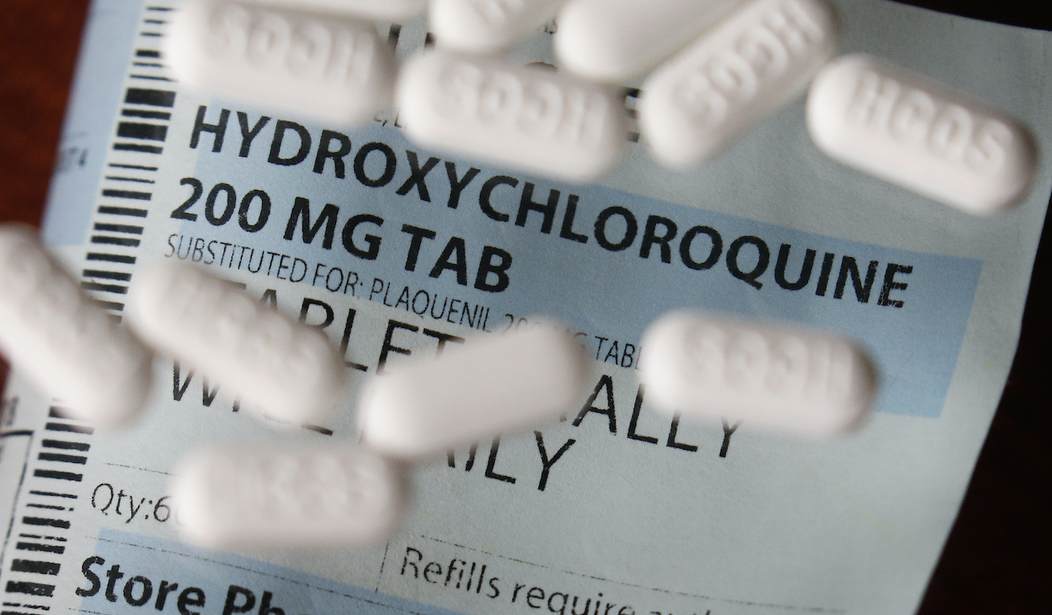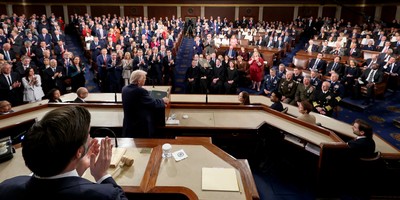America faces a contagious infection: partisanship. Consider the responses to a poll question about treating the COVID-19 virus with the long-approved and widely used drug hydroxychloroquine.
A Morning Consult poll shows 52% of Republicans supporting the drug and 16% against. At the same time and in the same country, 56% of Democrats opposed it, and 13% were in favor.
You can be reasonably sure that 99% of these respondents had never heard of COVID-19 and/or hydroxychloroquine on New Year's Day 2020.
Their opinions are obviously responses to President Donald Trump's statements that the drug might be useful in treating the virus. There's evidence for and against that but no definitive scientific consensus. Nonetheless, two-thirds of Americans have formed strongly held opinions.
Partisan views are perhaps strengthened because there's a correlation between the impact of the virus and voting behavior. COVID-19 infections and deaths have been concentrated in heavily Democratic million-plus metro areas. Its greatest incidence, by far, has been in the overwhelmingly Democratic New York City metro area. It's had little incidence, apart from in nursing homes, prisons and meatpacking plants, outside these large metro areas, and most of the outer areas voted heavily for Donald Trump.
That coincidence has pushed some partisans into positions at odds with what have been taken as their basic inclinations. Social scientists have long claimed, on the basis of dubious research, that political liberals are more open to new experiences and political conservatives more risk-averse. But it's Democratic governors, by and large, who have imposed restrictive lockdowns and leaned against what they regard as overly risky reopenings.
Recommended
In doing so, they've taken a narrow, one-dimensional view of risk: that people might die or be seriously injured by COVID-19. They've tended to ignore the public health risks of continuing lockdowns, which include "deaths of despair" from depression and suicide, and cancers and cardiac conditions left undetected because of canceled tests and procedures.
Democrats defending continued lockdowns like to say they're valuing lives over dollars. Or, as the headline over a Paul Krugman column in The New York Times puts it, "How Many Will Die for the Dow?"
But as Krugman surely knows, the Dow has been recovering pretty smartly lately, and there's a large overlap between stock owners and those who have been able to work at home and continue drawing salary checks. They tend to be affluent college graduates, a group that has been increasingly Democratic and anti-Trump.
Those whose jobs and paychecks have suddenly disappeared tend to be blue-collar and service workers. They were starting to see above-average income gains during the Trump years, only to have these gains instantly wiped out. Historically, they were a Democratic constituency. Now they're seen as "deplorables" trending Republican. They may have noticed that risks from the virus are lower than predicted (except for the elderly) and less than the health and economic costs of continued lockdowns.
There's a symmetry between the partisan differences in opinion on the COVID-19 virus and the partisan differences in perception of Trump's supposed collusion with Russia.
Recent declassifications and the government's confession of error in the Michael Flynn case have made it clear that leading members of former President Barack Obama's administration violated longstanding norms by deploying intelligence and law enforcement agencies against the Trump campaign and to undermine the Trump administration.
The pretexts for these actions -- unverified allegations in the Steele dossier paid for by Hillary Clinton's campaign, supposedly suspicious behavior by minor Trump campaign aides Carter Page and George Papadopoulos -- now seem pathetically weak. Former special counsel Robert Mueller's partisan prosecutor team, with unlimited funds and a cooperative press, uncovered no evidence. "They found nothing," Trump recently and with uncharacteristic accuracy told interviewer Sharyl Attkisson. "No collusion."
Democrats complain with justice that Trump often violates longstanding norms of political behavior. But it's increasingly hard to avoid the conclusion that leading members of the Obama administration, and perhaps Obama himself, abandoned the norm of legitimizing the peaceful and orderly transition of power, which goes back to John Adams in 1801 and was followed, grudgingly but faithfully, by Richard Nixon in 1960 and Al Gore in 2000.
The collapse of the Russia-collusion charge seems to have made little impression on partisan opinion. Republican voters never gave it significant credence. Pulitzer prizes were lavished on New York Times and Washington Post reporters for their credulous coverage. Meanwhile, Democrats still make barbed comments and lame jokes about how Russia stole the 2016 election, and partisanship infects legitimate debate about how to deal with a virus whose character and behavior is only beginning to be understood.
Michael Barone is a senior political analyst for the Washington Examiner, resident fellow at the American Enterprise Institute and longtime co-author of The Almanac of American Politics.

























Join the conversation as a VIP Member